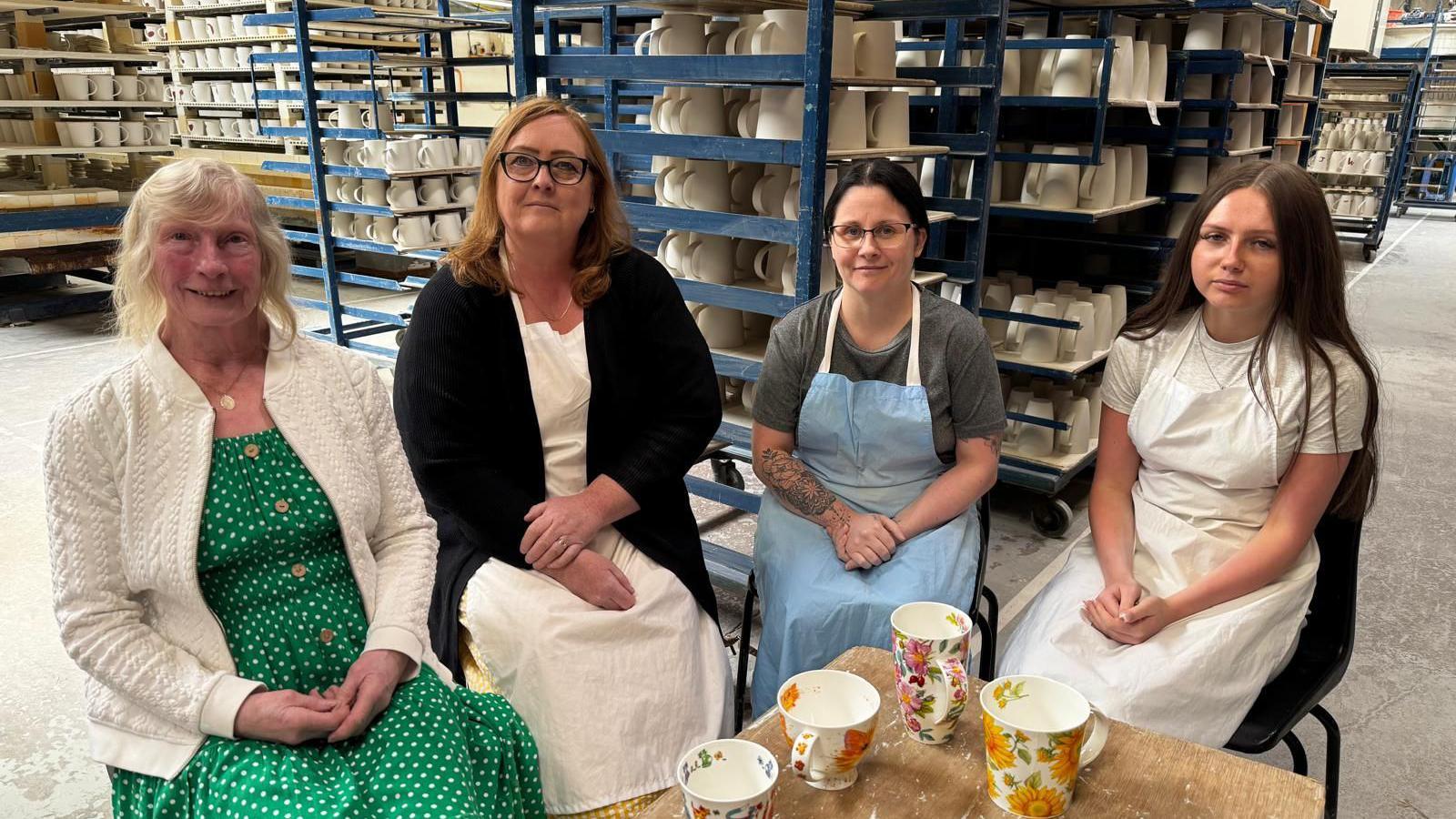Pottery firm plea to help industry 'on its knees'
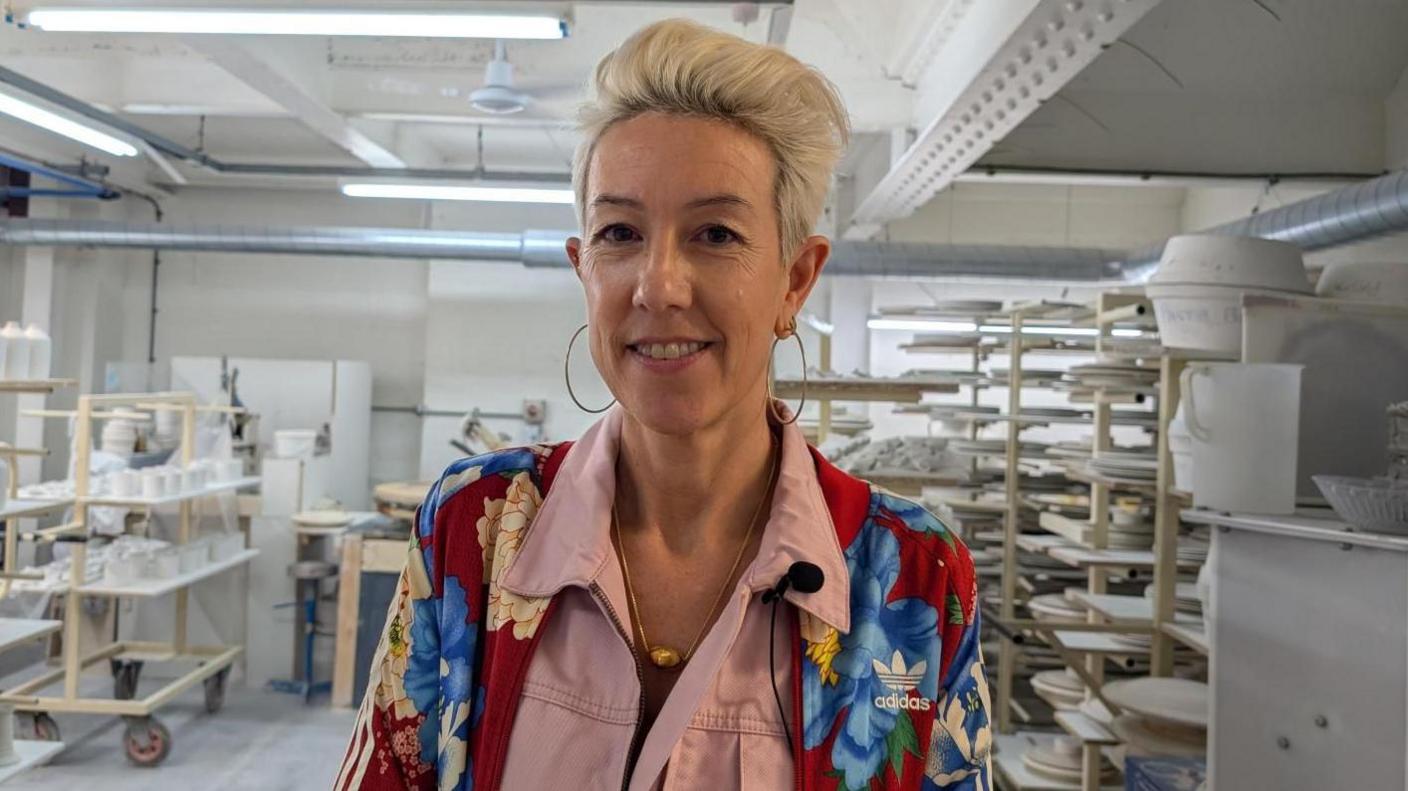
Emily Johnson is the co-owner of 1882 Ltd, a ceramics brand produced in Stoke-on-Trent
- Published
Ahead of the government spending review on Wednesday, pottery bosses are not holding out hope for it to contain support with spiralling energy or employment costs.
"Our industry is on its knees," said fifth generation ceramicist Emily Johnson, from one of the oldest traditional Stoke-on-Trent manufacturing families - the Johnson brothers.
"There is a lot of hope and opportunity, however, we need help. If our industry fails, where do people work?"
The Department for Business and Trade said: "Ministers continue to engage closely with the ceramics sector to understand the challenges and provide support, ensuring the industry is globally competitive as part of our Plan for Change."
In 2011, Ms Johnson established 1882 Ltd, one of the youngest ceramics firms in Staffordshire. She said she did not believe ministers would step in:
Although the pottery industry has been in decline for decades, 2025 has seen a quick succession of three Stoke-on-Trent manufacturers going bump, citing energy bills as the reason.
The events included:
The February collapse of historic firm Royal Stafford along with the loss of 70 jobs, followed by Heraldic Pottery going into liquidation, and other firms working on reduced hours.
Moorcroft's trading end in April. The company stated its energy costs had gone up almost £250,000 over the past two years.
In March, in between the events, industry bosses and unions pitched a rescue plan to ministers in "make or break" meetings, including Labour Stoke-on-Trent Central MP Gareth Snell who said help could not come fast enough.
But Ms Johnson said she believed that while "our local MPs are doing all they can", they were just "getting lip service" from ministerial colleagues.
"We don't need lip service," she said, "we need help."
Without it, she added, the future of factories, and the industry itself, were in jeopardy.

Stoke-on-Trent born popstar Robbie Williams has partnered with 1882 Ltd as a designer, these mugs are part of his range.
The 1882 Ltd firm has a factory within the Wedgwood site in Barlaston, employs 23 potters, and operates ten electric kilns for firing products, as opposed to the traditional gas kilns.
Kiln operator Nathan Platt said that insulating kilns with bricks made them more efficient, however they still used a lot of energy.
"The gas kilns, it's a lot of money. Electric, it's a lot of money. But I'd say electric kilns are smaller, easier to fill, easier to empty quicker," he said.
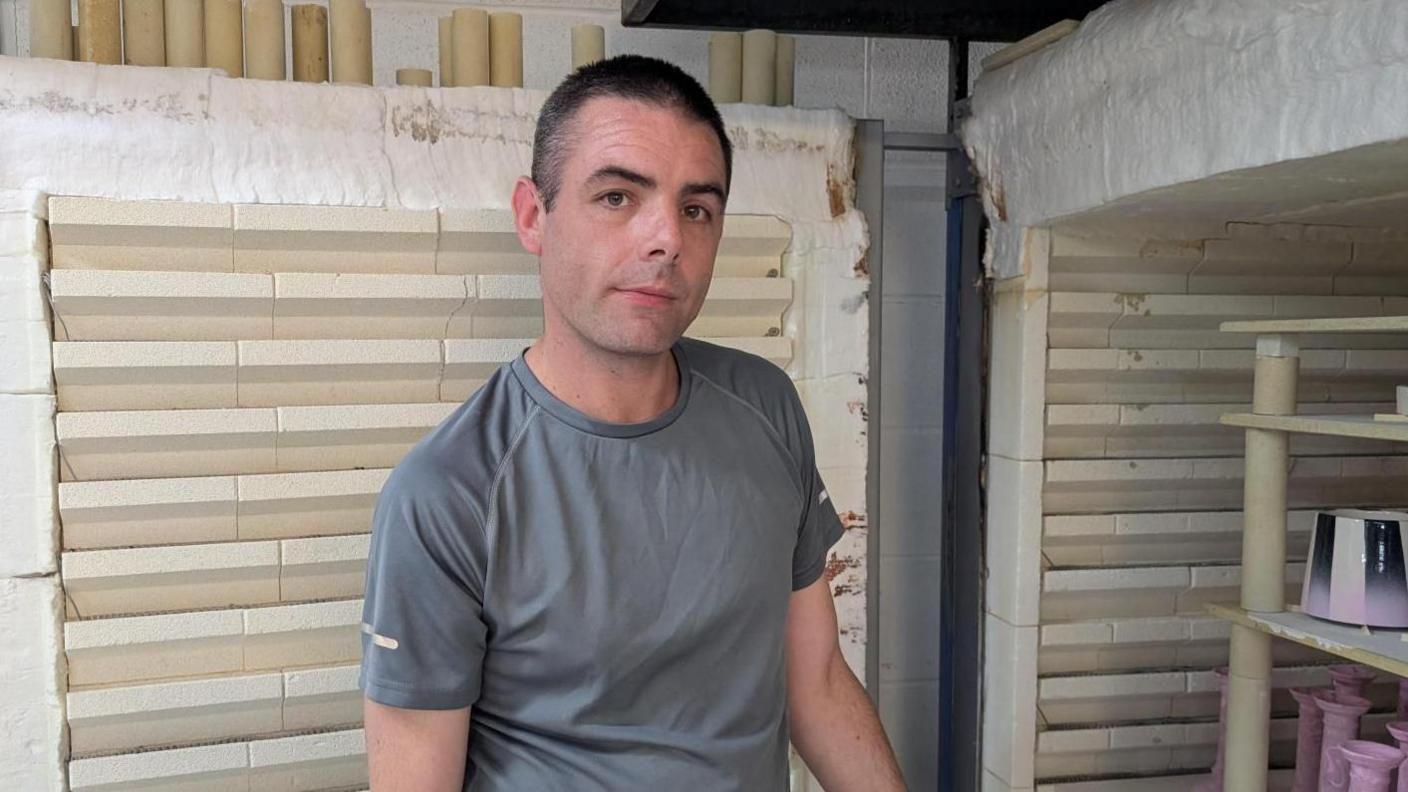
Nathan Platt works at 1882 Ltd, and explains how insulating an electric kiln with a brick lining can make it more energy efficient, although there is still expense
With an ageing workforce within the industry, there are fears those with specialised skills will literally die out.
Andrew Henshall, a potter for 50 years, and one of only a handful of ceramic modellers left, said he was positive there remained a demand for handmade pieces.
And despite a changing market, he likes an approach that prioritises the potential of the craft.
"It's not who can make the cheapest mug or who can make the cheapest teapot now," he said. "It's often guided by designers who say they want to create a new range, or create something beautiful."
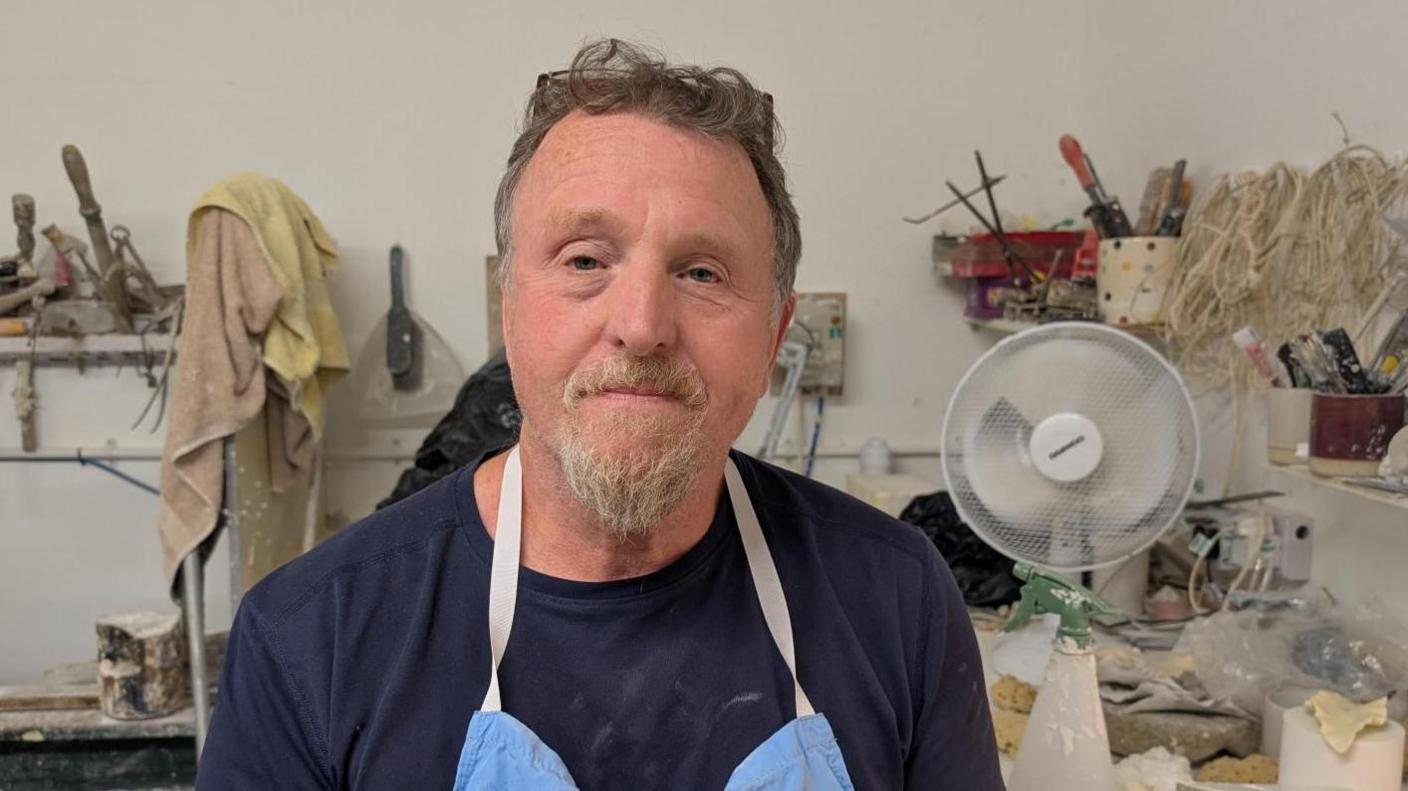
Andrew Henshall has worked as a ceramic modeller for 50 years. He says there's only a handful of people with his skillset left in the city
Rob Flello, chief executive of Ceramics UK, said he believed the government was listening, but whether the message cut through to the treasury remained to be seen.
"All we're asking really is that some of the burdens that are placed on our industry are lifted, so those taxes, those levies - get those lifted off."
Follow BBC West Midlands on Facebook, external, X, external and Instagram, external. Send your story ideas to: newsonline.westmidlands@bbc.co.uk, external
Related topics
Related stories
- Published17 May
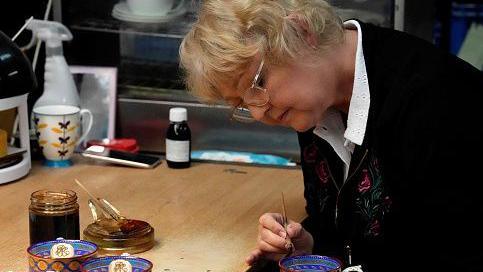
- Published7 May
